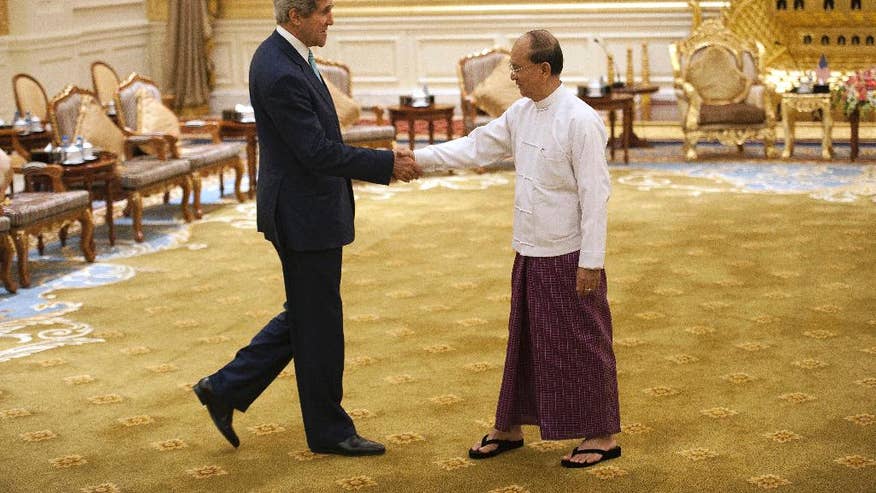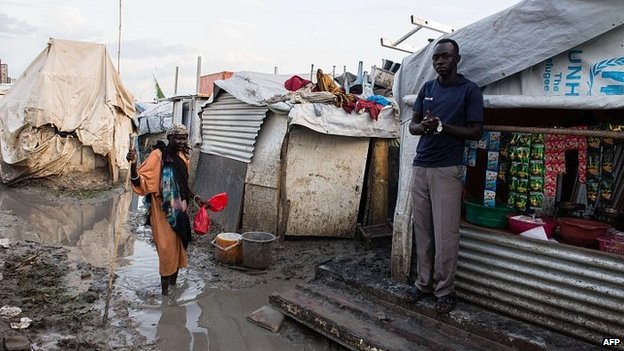By Hojin Choi
Impunity Watch Reporter, Asia
PHNOM PENH, Cambodia – It took 35 years to make them face justice. An international tribunal sentenced two former leaders of the brutal Cambodian regime, Khmer Rouge, to life in prison. They were found guilty of crimes against humanity, forced transfers, forced disappearances, and attacks against human dignity.
Khmer Rouge, a radical regime of the Communist Party, governed Cambodia from 1975 to 1979. The regime attempted to create an agrarian utopia and abolished religions, schools, and currency to achieve this goal. During the period, the government forced an exodus of millions of its citizens out of towns and cities causing the deaths of nearly 2 million. The leading causes of death included starvation, overwork, and executions. This event, now known as the “Killing Fields,” is detailed by the famous film with the same title.
The two defendants were once in core positions of Khmer Rouge. Khieu Samphan, 83, was the Head of State. Nuon Chea, 88, was the chief ideologist of the regime. Both were the top-level leaders who are now considered accountable for the crimes.
The United Nations supported organizing the international tribunal, and the Cambodians and U.N. formed the court in 2006, known as the Extraordinary Chambers in the Courts of Cambodia (ECCC). The ECCC consisted of both Cambodian and international jurists. However, the effectiveness of the ECCC has been criticized for its slow progress as well as the high cost. Before the conviction of Samphan and Chea, it had convicted only one defendant, Kaing Guek Eav, the director of a notorious prison where about 14,000 inmates died. Kaing Guek Eav was also sentenced to life imprisonment. The ECCC has spent $200 million so far.
Amnesty International, the human rights organization, reported the verdict as “an important step towards justice.”

Outside the court room, many survivors and aggrieved families gathered together and cried when the verdict was announced. “It’s important for the young population to learn this lesson so that we can prevent such atrocity from occurring anywhere, not just in Cambodia,” Survivor Youk Chang said. He also said it was “a little too late for many.”
Reportedly, the defendants lawyers are seeking to appeal while the defendants are in detention. Further investigations and trials will continue on Khmer Rouge genocide cases. However, it does not appear as though the ECCC has all the relevant individuals and documents. For the most part, these resources are too old to be acquired.
Other cases involving Khmer Rouge leaders will remain unresolved. Ieng Sary, the former Foreign Minister of Khmer Rouge, died in 2013 while the case was being prepared. His wife Ieng Thirith, the former Social Affairs Minister, was dismissed from the case due to her health condition. The top leader of Khmer Rouge, Pol Pot, died from a heart attack shortly after being arrested in 1998.
For more information, please see;
USA Today – Cambodia tribunal convicts Khmer Rouge leaders – 8 August 2014
BBC – Top Khmer Rouge leaders guilty of crimes against humanity – 7 August 2014
The Phnom Penh Post – ‘I will not go to the court, even if they come to arrest me’ – 9 August 2014
International Business Times – Top Khmer Rouge Leaders Sentenced To Life In Prison For Crimes Against Humanity – 7 August 2014


 (New Haven) — Today, the Iran Human Rights Documentation Center (IHRDC) released a detailed report, Apostasy in the Islamic Republic of Iran, explaining the jurisprudential as well as the legal context in which apostasy cases are prosecuted in the Islamic Republic of Iran. The report takes an in-depth look at a number of apostasy cases involving a diverse range of defendants, and provides an account of the legal and religious issues raised in each case. A full version of the report is accessible
(New Haven) — Today, the Iran Human Rights Documentation Center (IHRDC) released a detailed report, Apostasy in the Islamic Republic of Iran, explaining the jurisprudential as well as the legal context in which apostasy cases are prosecuted in the Islamic Republic of Iran. The report takes an in-depth look at a number of apostasy cases involving a diverse range of defendants, and provides an account of the legal and religious issues raised in each case. A full version of the report is accessible 